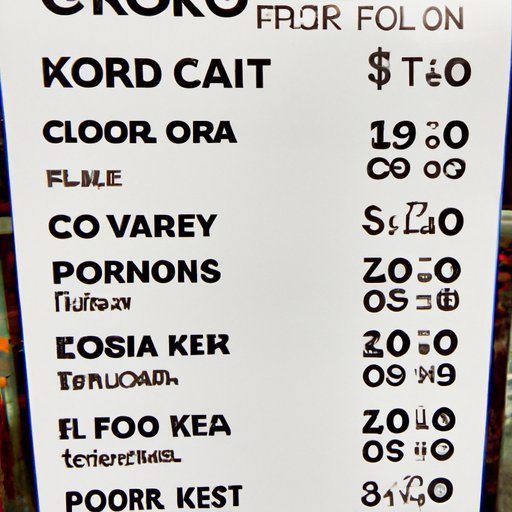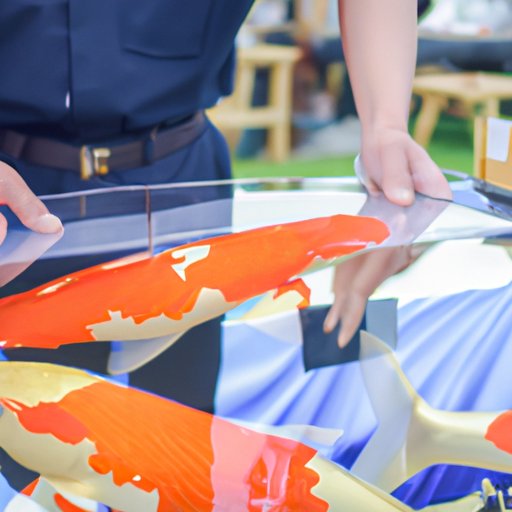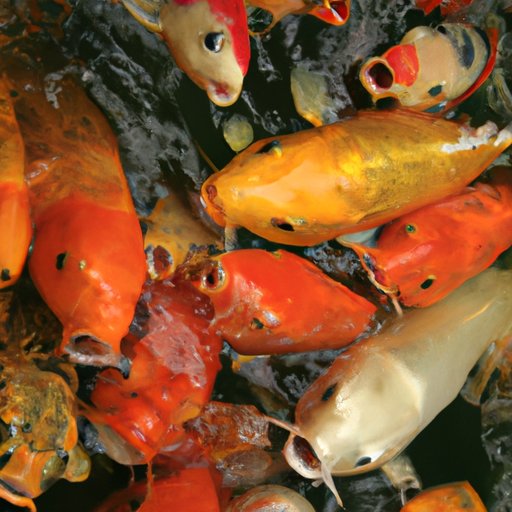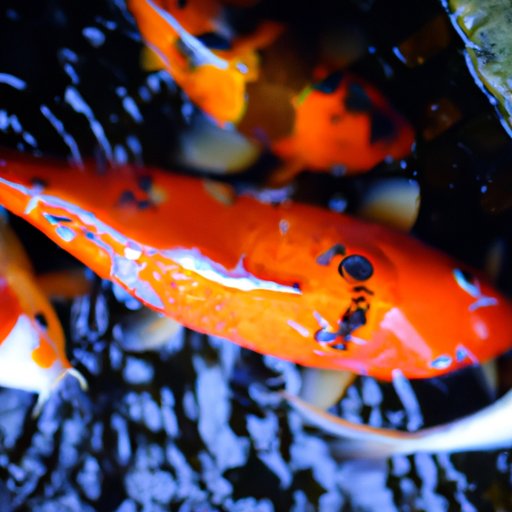Introduction
Koi fish are some of the most popular and recognizable fish in the world. They have been around for centuries, and their majestic beauty has captivated people from all walks of life. Koi fish come in a variety of shapes, sizes, and colors, making them a great addition to any aquarium or garden pond. But before you invest in a koi fish, it’s important to understand the costs associated with owning one.
An In-Depth Guide to the Cost of Owning a Koi Fish
The cost of owning a koi fish can range from a few hundred dollars to several thousand depending on the size and type of fish you purchase. Before you make a purchase, it’s important to understand the basic costs involved in starting a koi pond and maintaining it over time.
Basic Costs of Starting a Koi Pond
Before you start your koi pond, it is important to consider the cost of materials needed to build and maintain the pond. This includes things like:
- Pond liner
- Pump and filtration system
- Heater
- Plants and decorations
According to an article in Aquarium Adviser, “the average cost of starting a koi pond is around $1,000 to $2,000.” This may seem like a lot of money, but if you plan ahead and shop around, you can find great deals and save money in the long run.
Additional Costs of Maintaining a Koi Pond
Once you have your koi pond set up, there will be additional costs associated with maintaining it. These include things like:
- Food for the koi fish
- Chemicals to keep the water clean
- Electricity to power the pump and filter
- Replacement parts for the pump and filter
According to The Spruce Pets, “the cost of maintaining a koi pond can range from $50 to $100 per month or more, depending on the size of the pond and the number of fish.” It is important to factor these costs into your budget when planning for a koi pond.
Cost of Buying a Koi Fish
Of course, the biggest cost associated with owning a koi fish is the cost of the fish itself. The price of a koi fish can vary greatly depending on its size, color, and pattern. Generally speaking, the larger the koi fish, the more expensive it will be. Additionally, rarer varieties of koi fish can command higher prices.

A Comparison of Prices for Different Types of Koi Fish
When it comes to buying a koi fish, there are many variables that can affect the price. Here are some examples of different types of koi fish and their approximate prices:
- Small koi (6 inches): $50-$100
- Medium koi (12 inches): $100-$400
- Large koi (18 inches): $400-$1,000
- Show-quality koi (24 inches): $1,000-$3,000
As you can see, the cost of a koi fish can vary significantly based on its size and quality. It is important to do your research and find out as much as you can about the koi fish you are interested in before making a purchase.

What to Consider Before Purchasing a Koi Fish
When shopping for a koi fish, there are a few key factors to consider. Firstly, it is important to take into account the size of the koi fish. Smaller koi fish are generally less expensive than larger ones, so it is important to consider how big of a fish you want and how much space you have for it. Secondly, it is important to pay attention to the health of the koi fish. Make sure to inspect the fish carefully and look for any signs of illness or injury.
Finally, it is important to buy your koi fish from a reputable source. Talk to your local pet store or koi breeder to ensure that you are getting a healthy fish. Many online retailers also sell koi fish, however, it is important to do your research and make sure they are reputable before making a purchase.
How to Budget for a Koi Fish
When budgeting for a koi fish, it is important to consider both the upfront cost of the fish as well as the ongoing costs of maintenance. To estimate your budget, first calculate the total cost of setting up the pond and purchasing the koi fish. Then, estimate the cost of monthly maintenance, such as food and chemicals. Finally, add these two numbers together to get an estimate of your total budget for a koi fish.

The Pros and Cons of Investing in a Koi Fish
When deciding whether or not to invest in a koi fish, it is important to consider the pros and cons. On the one hand, owning a koi fish can be a rewarding experience. According to National Geographic, “koi can live for decades and grow to be quite large, providing years of enjoyment.” Additionally, koi ponds can add beauty and value to your home.
On the other hand, owning a koi fish can be a significant investment. The upfront cost of setting up a koi pond can be quite high, and the ongoing costs of maintenance can add up quickly. Additionally, koi fish require a lot of care and attention, and can be prone to disease if not cared for properly.
Conclusion
In conclusion, owning a koi fish can be a rewarding experience. However, it is important to understand the costs associated with owning a koi fish and how to budget for one. Be sure to consider the size, health, and cost of the koi fish before making a purchase. Additionally, be sure to weigh the pros and cons of investing in a koi fish before taking the plunge.
Summary of Key Points
To summarize, the cost of owning a koi fish can range from a few hundred dollars to several thousand depending on the size and type of fish you purchase. The cost of setting up a koi pond and maintaining it over time should also be taken into consideration. Additionally, it is important to consider the size, health, and cost of the koi fish before making a purchase. Finally, weigh the pros and cons of investing in a koi fish before taking the plunge.
Final Thoughts on Owning a Koi Fish
Owning a koi fish can be a rewarding experience. Not only do they provide years of enjoyment, but they can also add beauty and value to your home. However, it is important to understand the costs associated with owning a koi fish and how to budget for one. With careful consideration and planning, you can be sure to find the perfect koi fish for your home.
(Note: Is this article not meeting your expectations? Do you have knowledge or insights to share? Unlock new opportunities and expand your reach by joining our authors team. Click Registration to join us and share your expertise with our readers.)
